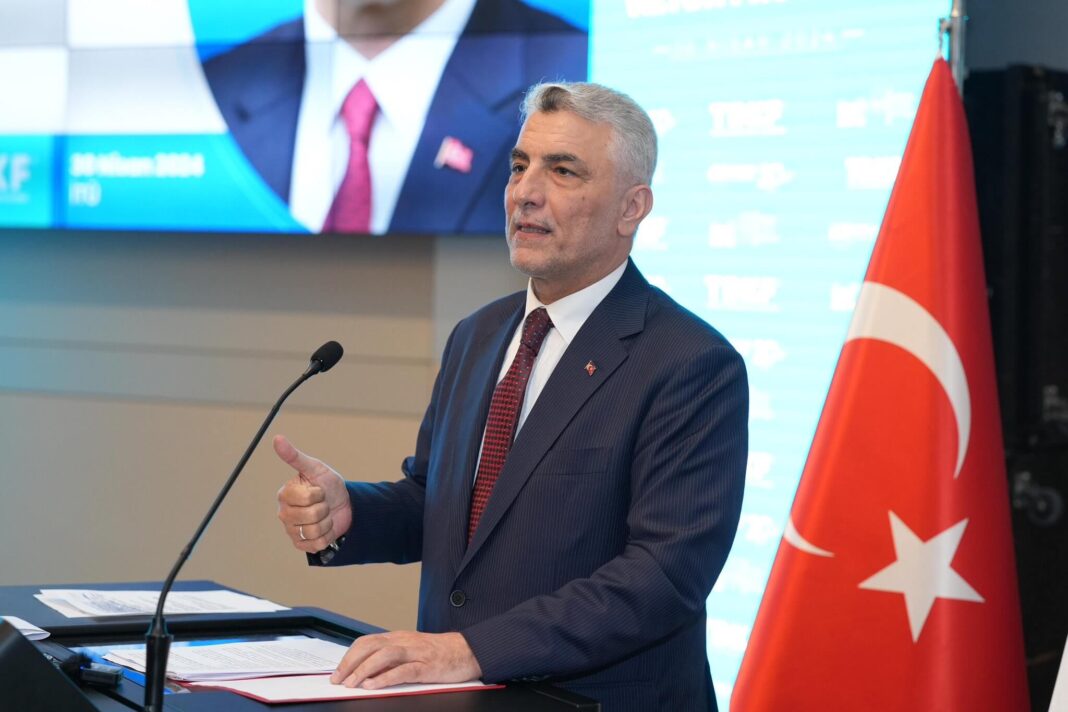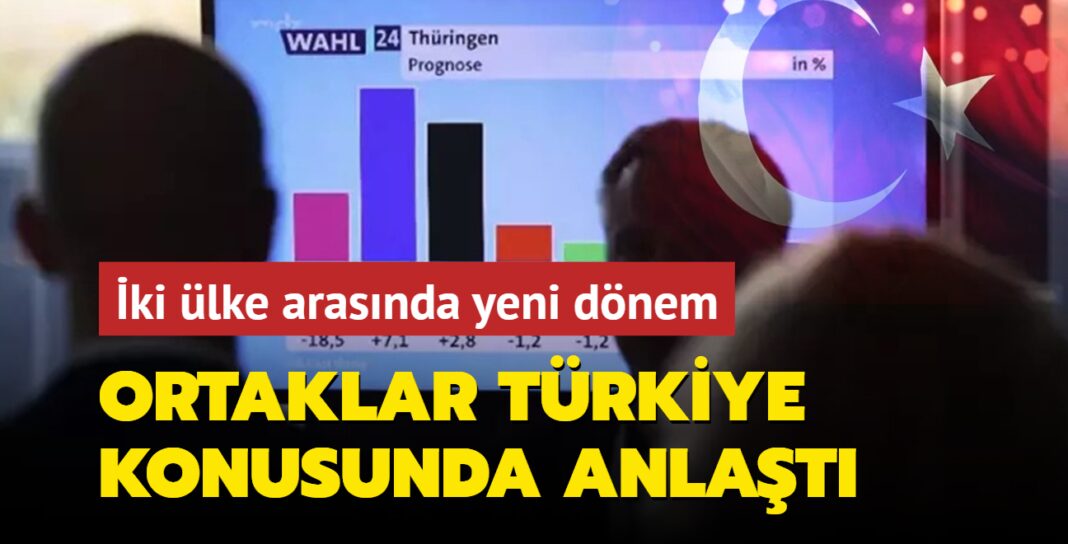Turkey is seeking to turn a 10 percent US import tariff imposed by President Donald Trump into a diplomatic and economic opportunity as higher duties target many of its trade rivals, Trade Minister Ömer Bolat said, in remarks published by the state-run Anadolu news agency on Friday.
Bolat said the United States announced additional tariffs on Wednesday ranging from 20 percent on the European Union to as high as 49 percent on Cambodia, while Turkey was placed in the lowest bracket at 10 percent.
He said the US decision aims to revive domestic manufacturing, reduce trade deficits and attract foreign investment into American industry.
Bolat told Anadolu that the tariff on Turkey is part of a broader measure affecting 185 countries, with China facing a 34 percent tariff and Vietnam 46 percent.
He said that although any additional tariff is a burden, Turkey views its relatively lower rate as the “lesser evil” when compared to other countries hit harder by the same US policy.
Bolat said Turkey would use this new trade framework to increase its exports to the US and push for broader liberalization through a “win-win” approach.
He said Turkey is developing sectoral plans for industries including textiles, ready-to-wear and machinery to adjust to the new US tariff structure.
Bolat announced that he would attend the Turkish-American Conference in Washington in mid-May and have official talks with the US secretary of commerce and the US Ttade representative.
He said one of the priorities will be to negotiate the removal of the 10 percent tariff, citing the $2.4 billion US trade surplus with Turkey in 2024.
Bolat said bilateral trade between the two countries grew by 4.7 percent in 2024 to reach $35.2 billion, with the US ranking as Turkey’s second-largest export market.
He added that the countries would soon convene the Trade and Investment Council (TIFA) to deepen cooperation.
Deutsche Welle’s Turkish edition (DW Türkçe) quoted Bülent Aymen, honorary president of the Mediterranean Furniture, Paper and Forestry Products Exporters Association, as saying the US has become a “rising market” for Turkey over the past three years.
Aymen told DW Türkçe that Turkish exporters could gain a pricing edge in the American market compared to countries like China and the EU facing higher tariffs.
He said the tariffs may give Turkish producers a competitive advantage in sectors such as chemicals, automotive, furniture and electronics.
Murat Akyüz, former chairman of the İstanbul Chemical Products Exporters’ Association (İKMİB), told DW Türkçe that while the tariffs offer a potential opening, “Turkish manufacturers and exporters are unprepared” for the shift.
Akyüz said Turkey had long planned to build logistics centers in the US but failed to execute those plans, weakening its ability to respond quickly.
He warned that with producers in countries like Vietnam, Cambodia and China facing higher US duties, Turkish companies must act quickly to fill the gap.
Akyüz told DW Türkçe that foreign companies may seek to invest in Turkey to benefit from lower tariffs on goods exported from Turkish territory.
He said Turkey should launch targeted efforts to attract investment from Asian countries seeking alternative routes into the US market.
Şeref Fayat, head of the Ready-to-Wear and Apparel Sector Assembly at the Turkish Union of Chambers and Commodity Exchanges (TOBB), told DW Türkçe that Turkey’s balanced trade with the US means it is unlikely to face political backlash.
Fayat said Trump’s tariff strategy targets countries with large US trade deficits, a category that does not include Turkey.
He said Turkish textile and apparel exports to the US totaled about $1 billion in 2024, and the US supplies more than half the cotton used in the sector.
Fayat warned that retaliation from the EU or China could escalate global trade tensions and affect Turkey’s positioning.
He added that Turkey should monitor how its main trade partner, the EU, responds to US tariffs and consider establishing an export-oriented free zone for the US market.
Sinan Ülgen, chairman of the Center for Economics and Foreign Policy Studies (EDAM) think tank, wrote on X that Turkey’s short-term response may involve imposing retaliatory tariffs on selected US goods.
Ülgen said this tactic was used previously when the US applied additional duty on Turkish steel.
He wrote that coordination with the European Union would be important as Brussels may seek tariff negotiations with the US before taking countermeasures.
Ülgen warned that if the EU reduces its Common External Tariff on automotive goods, Turkey would also have to comply due to its customs union agreement.
He added that Turkey must prepare for “second-wave” effects, such as Chinese exports being redirected toward countries like Turkey as US access narrows.
Ülgen wrote that Turkey will need stronger institutional capacity to protect its domestic market in a more protectionist global trade environment.
He argued that long-term shifts in trade and investment will favor nations with closer political and economic alignment.
Turkey could be a winner in this new era if it deepens integration with Europe and reinforces democratic and legal norms, he added.





